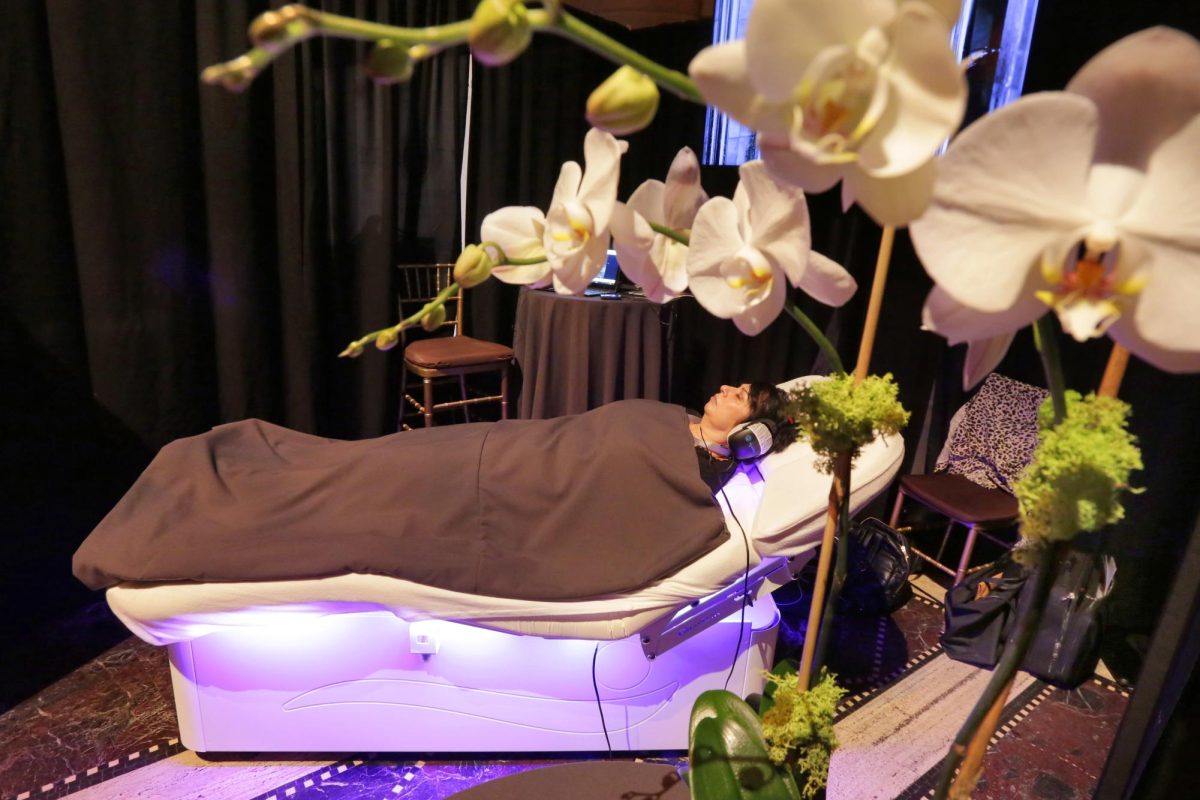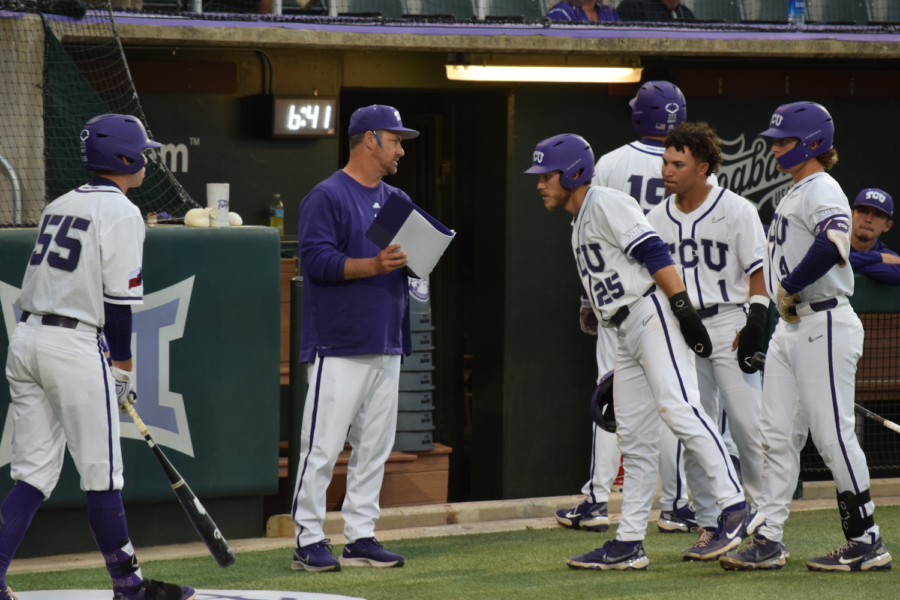Proposed changes to Title IX will bring colleges and universities closer to the courtroom, according to TCU officials who work with the federal rules barring gender discrimination.
Both Leah Carnahan, TCU’s assistant director of Title IX advocacy and education, and Dr. Darron Turner, TCU’s chief inclusion officer
Turner said the single investigator model, which involves one-on-one conversations with the survivor, respondent and witnesses, is more accurate because of its intimate interpersonal dynamic. Students who were being investigated, he said, where surprised how fair the process was to them.
But Secretary of Education Betsy DeVos has said the current system, which was created in the Dear Colleague Letter released by the Obama administration in 2011, is unjust and biased against accused students. To balance the scales of justice, DeVos said in a speech at George Mason University she will amend the system to ensure due process. This includes allowing for indirect cross-examination.
Carnahan predicted this approach will impact the number of people who report their assaults.
It’s “going to roll us back decades,” she said. “Even fewer people will report.”
A Trial on Due Process

Carnahan said she has seen how difficult being cross examined by a respondent’s chosen advisor, often a defense attorney, in a panel style hearing is for survivors. She said this will deter students from reporting their assaults.
But DeVos said everyone loses in the current system, including survivors. The lack of due process for the accused, she said, is discriminatory.
“With the heavy hand of Washington tipping the balance of her scale, the sad reality is that Lady Justice is not blind on campuses today,” DeVos said in a speech at George Mason University. “This unraveling of justice is shameful, it is wholly un-American, and it is anathema to the system of self-governance to which our Founders pledged their lives over 240 years ago.”
Lisa, a representative from Families Advocating for Campus Equality, or FACE, whose name has been changed to protect her privacy, also said there isn’t any due process in the current Title IX disciplinary process. She said schools don’t follow their procedures in a fair or just manner that presumes the accused is innocent until proven guilty.
Lisa said FACE was created in response to the lack of justice in the Title IX investigative process implemented by the Dear Colleague Letter in 2011.
“These students and their families had undergone awful, brutal experiences adjudicating allegations,” she said.
Lisa said based on her experience working with FACE, schools can’t be trusted to do the right thing regarding Title IX cases, which is why the Trump administration has proposed implementing procedural protections that mimic the legal system. But Carnahan said the outcome of an academic disciplinary system, which deals with access to education, is different from the purpose of the criminal justice system.
“It wouldn’t stop someone living their life free of jail time,” Carnahan said.
A Stricter Standard

Under the Obama administration, university Title IX cases were adjudicated using the preponderance of evidence standard, which proves that there is a greater than 50 percent chance something is true. If the Trump administration’s recommendations are implemented, schools would have the option to apply either the preponderance of evidence standard or the clear and convincing standard, a higher standard that proves something is more than likely true.
Turner said the evidence required to fit clear and convincing standards is a “feather difference” from the preponderance of evidence requirements, but there’s no room for doubt for something to be considered clear and convincing. This isn’t realistic for college campuses, where Turner said alcohol and emotions make Title IX cases more complicated.
Turner also said the universities don’t have the legal support the criminal justice system has. Schools aren’t able to subpoena witnesses to testify in Title IX hearings, which makes it difficult to prove an assault or an act of misconduct happened.
Sexual assault cases often lack physical evidence. According to the World Health Organization, two-thirds of rape victims don’t have physical injuries.
Because legally proving an assault happened can be difficult, Faith, a senior at TCU whose name has also been changed in order to protect her identity as a survivor of sexual assault, said she chose not to report her rape.
“I’m sorry I can’t prove you were inside of me,” she said about her rapist. “I’m sorry I can’t prove I said no vocally three times.”
Searching for control, Faith said the often dragged out process of investigating sexual assaults wasn’t going to give her the justice and control she craved. Being sexually assaulted takes away control, she said. She didn’t want to go through a process that would take away her ability to control her decisions, so Faith decided to not press charges through Title IX or the legal system.
Carnahan said some survivors file a report without looking for or expecting a particular outcome; Rather, she said they want to be heard and for their attacker to know the impact their actions had.
Tightening Boundaries

When DeVos released the earlier draft of the Trump administration’s proposed Title IX changes in November, concerns rose about a provision that wouldn’t permit schools to pursue Title IX violations that occurred off campus boundaries. Although the current draft has been amended to clarify that this provision “does not create an artificial bright-line between harassment occurring ‘on campus’ versus ‘off campus,’” there is still concern schools will be limited on what they can investigate.
Carnahan said half of the Title IX incidents TCU investigates happened off campus. If TCU wasn’t able to investigate these reports, the repercussions for survivors would be a major concern, she said.
“They could live a block from
Faith said off campus parties play a role in the number of cases referred to Carnahan’s office. While working with Carnahan, Faith said she would see an increase in people seeking Carnahan’s guidance and support after a weekend with multiple off campus parties. Not only that, Faith said she also saw the impact of off campus sexual assault first hand at a party.
“Girl unconscious,” she said. “Guy openly trying to finger her.”
Grace, a survivor whose name has also been changed to protect her privacy, said the boundaries of a school’s campus shouldn’t define whether or not TCU should be able to hold its students accountable. She said students who agree to attend TCU agree to live by its moral standards.
Turner also said universities should be responsible for holding students accountable for upholding campus values. DeVos, however, said investigating Title IX cases shouldn’t be a school’s responsibility because it doesn’t fall under their educational expertise.
“Washington has insisted that schools step into roles that go beyond the mission of these institutions,” DeVos said. “This doesn’t mean schools don’t have a role. They do. But we should also draw on medical professionals, counselors, clergy, and law enforcement for their expertise.”
But lessening the role schools play could impact students’ ability to hold their schools accountable for investigating reports and providing them with support. There’s a sense of urgency to ensure survivors are supported because the university is held legally responsible for their well-being, Grace said.
“Who’s to say that sense of urgency would remain?” she said.
Lisa said the urgent fear of losing federal funding is what pushed schools toward removing due process from their Title IX disciplinary processes. It also led schools to pursue investigations even when the victim didn’t want to file a complaint, she said. DeVos also cited this as an issue in her speech when she talked about an incident when a witness reported an incident to Title IX.
“The young woman repeatedly assured campus officials she had not been abused nor had any misconduct occurred,” DeVos said. “But because of the failed system, university administrators told her they knew better.”
Cases like the one DeVos mentioned is why the Trump administration’s guidelines requires schools to have actual knowledge that a violation occurred. For a school to have actual knowledge a violation occurred, it would have to be reported to “an official with authority to take corrective action.”
Under the previous guidelines in the Dear Colleague Letter, schools were expected to investigate reports they had reasonable knowledge of, which meant schools were liable for investigating cases reported through less formal channels. Lisa said this system led to schools investigating allegations without the complainant’s consent.
Mandatory reporters at TCU, which includes resident assistants, faculty and staff, are required to report allegations to TCU’s Title IX office, which can prompt an investigation. But even if TCU isn’t obligated or able to investigate, Turner said mandatory reporters will still be required to report allegations so TCU can ensure the students involved have access to support.
Providing Support

Both the Dear Colleague Letter and the regulations DeVos
Putting in the time to support students is a fundamental aspect of how TCU’s Title IX office operates, Turner said.
“We’re seeing students as many times as we need to,” he said. “We will put in the time.”
Carnahan also said she will continue to focus on supporting survivors, but the proposed changes DeVos has proposed will make that a challenge. However, Turner said regardless of any outcomes, TCU will be there for its students.
“We’re going to support students,” Turner said. “No matter how a hearing comes out.”







